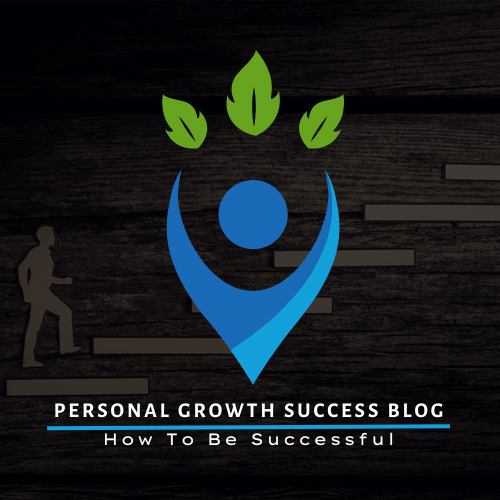
In today’s rapidly advancing digital era, automation is steadily reshaping the job market. Thus, it is essential for employees to continually upgrade their skill sets and adapt to the changing workforce requirements to stay competitive. Unfortunately, the technological advancement is causing job displacement and creating a talent deficit on the other side of the spectrum. Therefore, it becomes imperative to have a strategic plan in place to develop five essential human skills that can guarantee one’s employability.
Today’s employers highly value human skills such as Professionalism, critical thinking, communication, Adaptability & Flexibility, and Self-Awareness & Reflection. These are unique capabilities that automation cannot replicate, and as such, they hold a significant influence in the job market. According to a study by Indeed, “the demand for soft skills has risen in recent years, with employers reporting difficulty in finding candidates with the necessary human attributes.” Therefore, prioritizing the development of these essential skills can aid one in standing out among the crowd and position themselves as a valuable asset to an organization.

Essential Skill 1: Critical Thinking
Critical thinking skills are crucial for individuals who want to advance their careers, as they enable professionals to approach problems and decisions with a clear and analytical mindset. Such skills enable individuals to construct creative solutions to problems in a way that considers multiple perspectives and potential impacts. Developing these skills takes time and effort, but the results are valuable in the long run.
Active learning is a method that can be used to apply critical thinking skills to everyday experiences. Through active learning, individuals can engage in discussions, ask questions, and carry on group activities that focus on reflective thinking. The goal is to make informed judgments and decisions, rather than simply relying on assumptions or intuition. Critically thinking about real-life situations is key to developing an understanding of how decisions impact not only the individual but also their colleagues, the organization, and the industry as a whole. By practicing critical thinking regularly, individuals develop the ability to make sound decisions and develop creative solutions that consider multiple perspectives.
Essential Skill 2: Communication
Communication skills are fundamental to a successful career. They include verbal, written, and presentation skills that enable professionals to convey information, ideas, and perspectives to others effectively. Effective communication builds strong relationships with clients, colleagues, and management, leading to better collaboration and improved outcomes. Proficient communication skills allow individuals to articulate their thoughts and ideas clearly and confidently, leading to better problem-solving and decision-making.
Active listening, constructive feedback, and non-verbal communication are some of the most common communication skills that play a vital role in professional success. Active listening entails attentively listening to others and understanding their perspectives to facilitate clear communication. Constructive feedback involves providing feedback that helps others improve their work without demotivating them. Non-verbal communication, such as body language and tone of voice, can have a significant impact on how well someone is perceived in the workplace. Ultimately, effective communication skills lead to better relationships, job satisfaction, and career advancement opportunities.
Essential Skill 3: Professionalism
Professionalism is an essential skill for advancing your career. Employers highly value professionalism and a strong work ethic, with personal accountability and responsibility being key components. Demonstrating professionalism means showing up on time, communicating effectively, and behaving ethically. In addition, professionalism goes beyond how you act at work and extends to your personal brand and online presence.
To demonstrate professionalism, it’s important to take personal accountability for your actions and be responsible for meeting your commitments. This means showing up on time for meetings and appointments, being prepared, and following through on tasks. Effective communication is also key, both in person and in writing. It’s important to use clear, concise language and to be responsive to emails and other communication channels.
In addition to actions at work, your personal brand and online presence also play a role in demonstrating professionalism. This includes maintaining a professional appearance, ensuring your social media accounts and other online profiles are appropriate and up-to-date, and being mindful of how you represent yourself online. By demonstrating professionalism, you can build a strong reputation and stand out to potential employers.
Essential Skill 4: Adaptability & Flexibility
Adaptability and flexibility are crucial skills that employees need to possess to thrive in any work environment. With the rise of new technology and changing business practices, employees who can adapt to new ideas and approaches become valuable assets for any company. Employers appreciate individuals who can show resilience in the face of challenges and stay patient when things don’t go according to plan. Showing a capability to adapt to different situations also reflects self-management skills and a willingness to learn and grow.
It is essential to showcase your adaptability skills to your potential employer. Some of the strategies that you can use to enhance your adaptability skills include taking on new projects that challenge you and require you to learn new things, working with different teams that provide you with diverse experiences, and seeking feedback to improve further. By being open to feedback and actively seeking out new learning opportunities, you can demonstrate your skills not only in the workplace but also in your personal life. Remember, the key to becoming adaptable and flexible is to stay curious, patient, and willing to take on new challenges.
Essential Skill 5: Self-Awareness & Reflection
Self-awareness and reflection are essential skills for advancing one’s career. When an individual possesses these skills, they are able to evaluate their own performance and actions, identify their strengths and weaknesses, and make informed decisions about their career paths. Moreover, self-awareness and reflection facilitate personal growth and development by encouraging individuals to continuously learn and improve.
Having self-awareness enables individuals to recognize their transferable skills that would be valuable to potential employers, as well as areas where they need to improve. By reflecting on past experiences, an individual can identify patterns and trends in their behavior that may have contributed to their successes or failures. This can help them make better decisions in the future and achieve their career goals.
It is important for individuals to take the time to reflect on their own career goals and how their current skills align with those goals. By engaging in self-evaluation and regularly reassessing their career objectives, individuals can ensure that they are on track for success. Continuously developing self-awareness and reflection skills is crucial for navigating the complex and ever-evolving job market.

Conclusion
In today’s rapidly evolving workplace, cultivating essential human skills is crucial for career advancement. The rise of automation has created a demand for uniquely human skills such as critical thinking, communication, professionalism, adaptability, flexibility, self-awareness, and reflection. As the job market becomes more competitive, prioritizing the development of these skills through professional development, active learning, and self-reflection will be essential for success in the future workplace. By consistently honing these skills, individuals can position themselves as valuable assets to potential employers and increase their chances of achieving their career goals.








